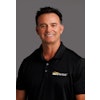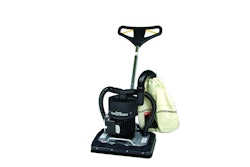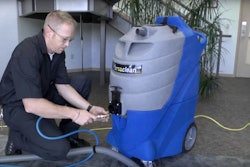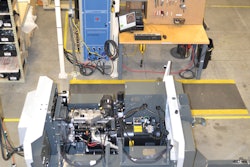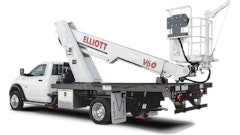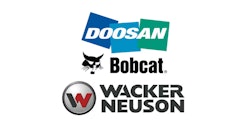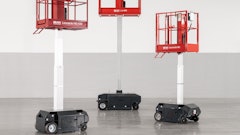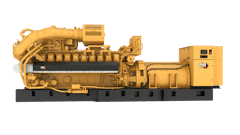
Rental professionals from different regional markets weigh in on their most critical issues and what keeps them up at night. Here's what they told us...
California - 'We’re looking for affordable skilled help'
“The market here in Northern California is booming. We’ve had some much needed rain, which has helped landscapers and other small contractors around the area. Our party business is going well, too,” said Dale Blackwell, president of Aba Daba Rents in Sacramento.
The uptick doesn’t come without challenges, the biggest of which is finding help. Currently, he’s looking to fill just about every position within the company from mechanics and truck drivers to counter people. “We’re open seven days a week and most people don’t want to work on weekends,” he explained. “Making it even more challenging are California laws like the one that requires paying employees who bring their own tools to work double minimum wage. For us, that means mechanics start at $20/hr. Even then, we can’t find help.”
In the meantime, Blackwell continues to advertise and work with temporary employment agencies. “We’ve had some success with temp workers,” he added. “Doing so gives us a chance to see if a person is going to fit and be considered for full-time employment. I know some people think hiring temporary workers is too expensive, but when you factor in not having to pay workers comp and put them on your health plan, it’s not that costly.”
Blackwell’s father Gene started the business in 1960 and his son has worked in the business since he can remember. Today, the rental house has two locations in Sacramento and employs 36 people. At least half of them, Blackwell noted, have been with the company at least 15 years.
Equipment rentals account for approximately half the company’s sales and party goods about 35 percent. One location also has two Ready Mix trucks that are busy six days a week. “We’re not in the big equipment business,” added Blackwell. “Instead, we cater to the smaller contractor. As such, our inventory stops where the ‘big boys’ begin.”
As he pointed out, his other big challenge is the California Air Resources Board (CARB). “We’re constantly upgrading equipment to meet emission standards, but the new equipment is expensive. For example, the last diesel generator we purchased cost $8,000 more than its sister generator did two years earlier. There has been a trend in some equipment such as air compressors to go back to gas, but the tradeoff is the engines are less durable. We’ve considered adding solar-powered light towers to our fleet as a way to keep some costs in line. All the time, we’re trying to adjust our rental rates while staying competitive and retaining customers.”
Still, the store’s biggest challenge is labor. “We’ve become more efficient, especially with inventory control, to save time and have had some success hiring retirees part-time. There’s been discussion around the industry about kiosk locations to reduce manpower needs, but I just don’t see that being realistic here.”
For this owner, the challenges create real issues but they seem a little less daunting when the market is looking up.
Michigan: Tough to predict the unpredictable
Daryl Bush, president of Bush Rental in Sheridan, MI, has been in the rental business 20 years. “I have never seen an election year quite like this,” he remarked. “Business is good, but very hard to predict. Equipment rentals have always gone in cycles but the cycles this year don’t seem to make any sense.”
“Of course, if I could predict who’s going to buy what when, I wouldn’t be in this business,” he laughed.
Rental is one of the company’s three profit centers. The other two include a hardware store and outdoor power equipment business. Rental sales account for approximately 40 percent of the company’s annual revenue.
Bush noted that being diversified is likely the only way to succeed in an unpredictable rental market, one that’s not only impacted by election years but also by weather and the economy. “We’re diversified with our customer base between homeowners and contractors,” he emphasized. “When the economy is good, the contractor business is good. When it goes soft, homeowners pick up some of the slack.”
He’s also diversified with his equipment lineup, offering a wide array of products, everything from dozers for moving dirt and man lifts for painting houses to virtually anything in between. As Bush pointed out, if you can’t predict what a customer is going to rent, then you have to be prepared to rent anything.
Bush Hardware had been in business 45 years before renting its first piece of equipment. “I never dreamed we would be the size we are. “We started out renting to homeowners and then customers asked for bigger equipment. Then, one day we had to purchase a semi to haul around equipment,” said Bush. “Again, we’re having a pretty good year, this despite a very hot summer and the pending election.”
One thing is for certain in this business, he reemphasized. One doesn’t know what next week will bring because it’s very tough to predict the unpredictable.
Ohio: 'We’re off the beaten path'
When asked what his biggest challenge is today, Dave Baker, owner of Hamilton Rental Center in Hamilton, OH, said it’s his store’s location. “We’re half way between Dayton and Cincinnati and probably 10 miles off I 75,” he related. “Becoming more diversified is one way we’ve overcome it. We focus on selling and repairing equipment, primarily for smaller contractors. Customers get to know us and our service so when it’s time for them to rent something, they come to us.”
Since purchasing the store in 2007, Baker has seen rental sales increase every year. In addition to selling, repairing, and renting equipment, Hamilton Rental Center also offers top soil, mulch and straw, and it has a concrete plant on site.
While diversification has brought in customers, Baker said it’s his team of eight employees that keeps them coming back. “Before becoming self-employed, I worked for a couple of companies where it just wasn’t fun to go to work. I promised myself then that if I ever had employees of my own, they would enjoy their job.
“We have fun at work and our team has responded. Everyone understands their role. They work hard and they’re rewarded. We are, too. Over the last five years, I would guess there haven’t been more than six or seven days in total when an employee has called in sick or otherwise said he couldn’t make it in.
“Our customers appreciate the work environment, as well. They not only receive timely service, but they also get friendly service. People remember their bad experiences, not the good ones. Customers could have hundreds of good experiences and then that one time, when things didn’t go so well, overshadows everything else.”
Smaller contractors, such as those who remodel homes and install roofs and landscapes, account for approximately 75 percent of rental sales, with homeowners making up the remainder. “I know that some rental houses don’t like to do business with homeowners, but we do. They’re a bit easier on equipment and having them as customers is part of being diversified,” said Baker. As he pointed out, starting a business in 2007 gives one an appreciation for how important it is to have a diversified customer base.
Oklahoma: Strange weather
After being in the rental business 50 years, not many things can surprise David Zorn, owner of Diamond-Zorn Inc. in Oklahoma City. “It’s a little slow right now, but all in all our year looks good,” he remarked. “Probably the biggest challenge we currently face is the weather. Right now, the temperature is 100 degrees F and the humidity is high. All one can do is drink a lot of fluids and stay in the shade.”
The temperature impacts more than the people operating his rental equipment. It affects the equipment, as well. “When it gets really hot like it has been the past few weeks, the ground gets hard and equipment like our skid steer loaders and mini excavators suffer.”
At one time, Zorn operated four rental stores and all but one has been sold. His current store caters to both homeowner and contractor customers and he also rents some party items. “As far as challenges go, I really can’t say that I have any. Like it has been for years, it’s a matter of getting the equipment in the hands of customers and keeping them satisfied. Overall, I’m satisfied.”
Kentucky: 'Holding our own'
D C Rental & Sales in Mayfield, KY, has been in business 17 years. Prior to that, company owner and president Donnie Crouch worked in construction for 27 years. “We’re holding our own this year, maybe down a little bit,” he remarked. “The economy, an election year, a plant closing down, and a new rental store in the area all contribute to the kind of year we’re having.”
The general rental store has a customer mix 50/50 homeowner/commercial and employs six people. “We don’t cater to the large contractors,” added Crouch. “Our largest piece of equipment is a mini excavator. In fact, we don’t rent anything over 10,000 lbs.”
He continued, “Even though we’re what I consider to be a small mom and pop operation one of our biggest challenges is bureaucratic paperwork. For example, we have one delivery truck but have the same amount of paperwork to wade through that a company with 50 trucks has. It doesn’t make any sense.
“Another challenge is the rising cost of health care. Over the years, we have provided health insurance for our employees. Unfortunately, costs have tripled, even quadrupled, making it prohibitive to continue this benefit. Trying to keep employees is difficult enough without them having to pay for their own health insurance. We offer a raise to help them find coverage on their own, but it’s never enough.”
Crouch has experienced being an employee and an employer. As he pointed out, both have their benefits and challenges. Being self-employed, however, and being able to “hold his own,” despite the headaches, still wins out.

